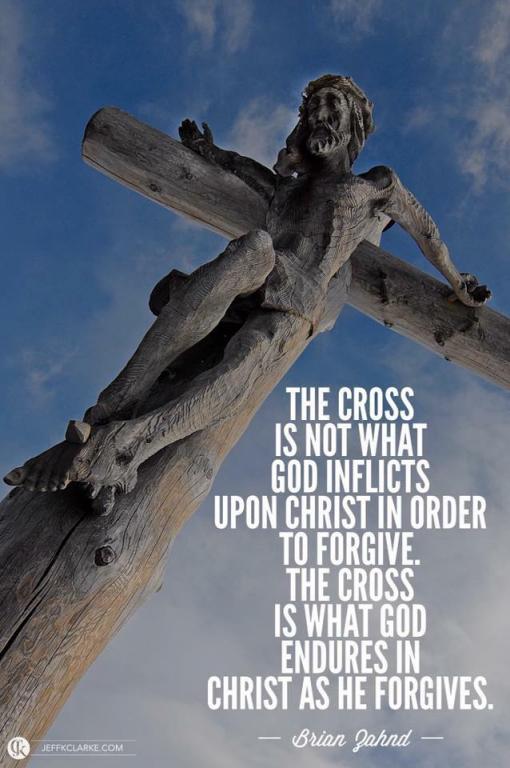The crucifixion of Jesus makes perfect sense as an expression of the wrath of the Romans against Jesus. But it is not at all self-evident as an expression of the wrath of God against Jesus, even if a wrath purportedly aimed at us which Jesus stepped in front of. Crucifixion was too common an occurrence in Jesus’ time for one particular crucifixion to stand out as indicating this, without some substantial commentary and interpretative interventions. The fact that most of us have never witnessed an execution, much less so many as to make them commonplace, allow many to read the story of Jesus today as though his being lifted up from the ground, nailed to a wooden beam, made him stand out rather than blend in with the crowd.
For us, Jesus is “the crucified.” For the early Christians, the question was rather how Jesus can be the Messiah despite appearing to be just another crucifixion victim.
And that leads to questions that intersect with widespread but incredibly problematic views of atonement. In the view of many, God requires death as payment for sin. Even if one grants that, it doesn’t answer the question of why crucifixion. Why not let Jesus die of old age? It could be the long, drawn out, agonizing death that many elderly people have experienced. It could be more tortuous than crucifixion and last far longer. Months, years of agony, wracked with pain. Pick the ailment. Pick several. They would all make for a natural – literally, but also metaphorically – expression of death as it is experienced by humanity in general, born by Jesus.
And so let me say once again what I said at the outset: The crucifixion of Jesus makes perfect sense as an expression of the wrath of the Romans against Jesus. But it is not at all self-evident as an expression of the wrath of God against Jesus. One can certainly interpret the death of Jesus theologically – as his earliest followers did, trying to explain how the Messiah could have been crucified, presumably in accordance with a divine plan. But one must start with the level of historical explanation – why would the Romans have crucified Jesus? Starting anywhere else does not lead naturally to the cross specifically.
Even with it being Good Friday, and even having a draft blog post with some relevant ideas and materials already in place, I still didn’t expect to blog about this. But then I had someone draw my attention to an article in Christianity Today – one that helpfully challenged the widespread assumption that the crucifixion of Jesus coincided with a rupture in a Trinitarian Father-Son connection. My conversation about the article, and comments on it, led to the discussion that sparked the post above.
It is one of the major problems with the penal substitutionary interpretation of the cross that it views God as the problem rather than the one offering the solution. But if there are two things that are consistently said throughout the Bible, including in connection with the activity of Jesus, it is that God is forgiving, and God is the one reaching out to humans despite our rebellious and wayward tendencies. Penal substitution, on the other hand, has God needing to be appeased, unable to look upon us or even upon Jesus when bearing our sins, as though sin were an object that could be slid from one person onto another. It is a problematic viewpoint through and through, as I’ve emphasized repeatedly in the past (which means that I can direct you to those earlier posts if you are interested in hearing more on the topic).
See too Matthew Distefano’s blog post on the subject, and also Michael Roberts’ in which he wrote:
In a sense the Four Gospels do not tell us why Jesus died, but the accounts are incredibly moving and may reduce us to silence. Many composers have put them to music, and none are better than Bach with his St Matthew Passion and St John Passion.
At times explanations can be crude as with the view that God punished Jesus instead of us. This comes out with some popular preaching, but it makes God seem unreasonable. Far better is to see Jesus submitting to injustice on our behalf and showing that the way of suffering for and serving others is the way of hope.














